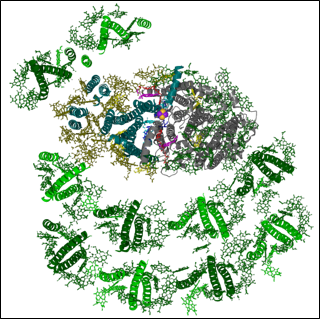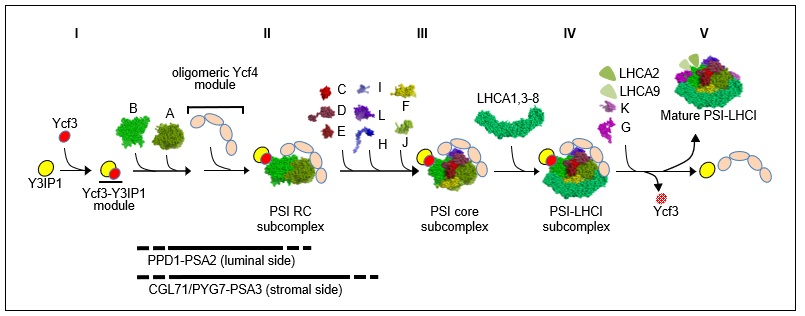Example
Molecular mechanism for the utilization of light energy
Objectives
Plants convert infinite CO2 and H2O into carbohydrate and O2 by using light energy from the sun. However, the quantity and quality of the sunlight change significantly, so that plants have developed the mechanism to protect photosynthetic apparatus from photo-damage and an apparatus to collect weak light energy. It is thus important to address the molecular mechanism to adapt the photosynthesis machinery to these light environments for efficient utilization of light energy. We are so far studying the molecular mechanism by which the photosynthesis apparatus is adapted to varying light environments. We for the first time determined the molecular arrangement of ten light-harvesting complexes of photosystem I and found that ten complexes are arranged as shown in the figure (right). This showed the structure of how weak light energy is collected efficiently. We also proposed a new working model for the photosystem I complex assembly as shown in the figure (below). This is important because the photosystem I is synthesized rather slowly compared with the photosystem I and it allows one to design a strategy to improve the recovery of photo-damaged photosystem I.

Future plan
We will genetically design photosynthetic organisms to improve light-harvesting capability and tolerance against photo-damage by enhancing the efficiency of the recovery from the photo-damage.

(photosystem I)
Representative
